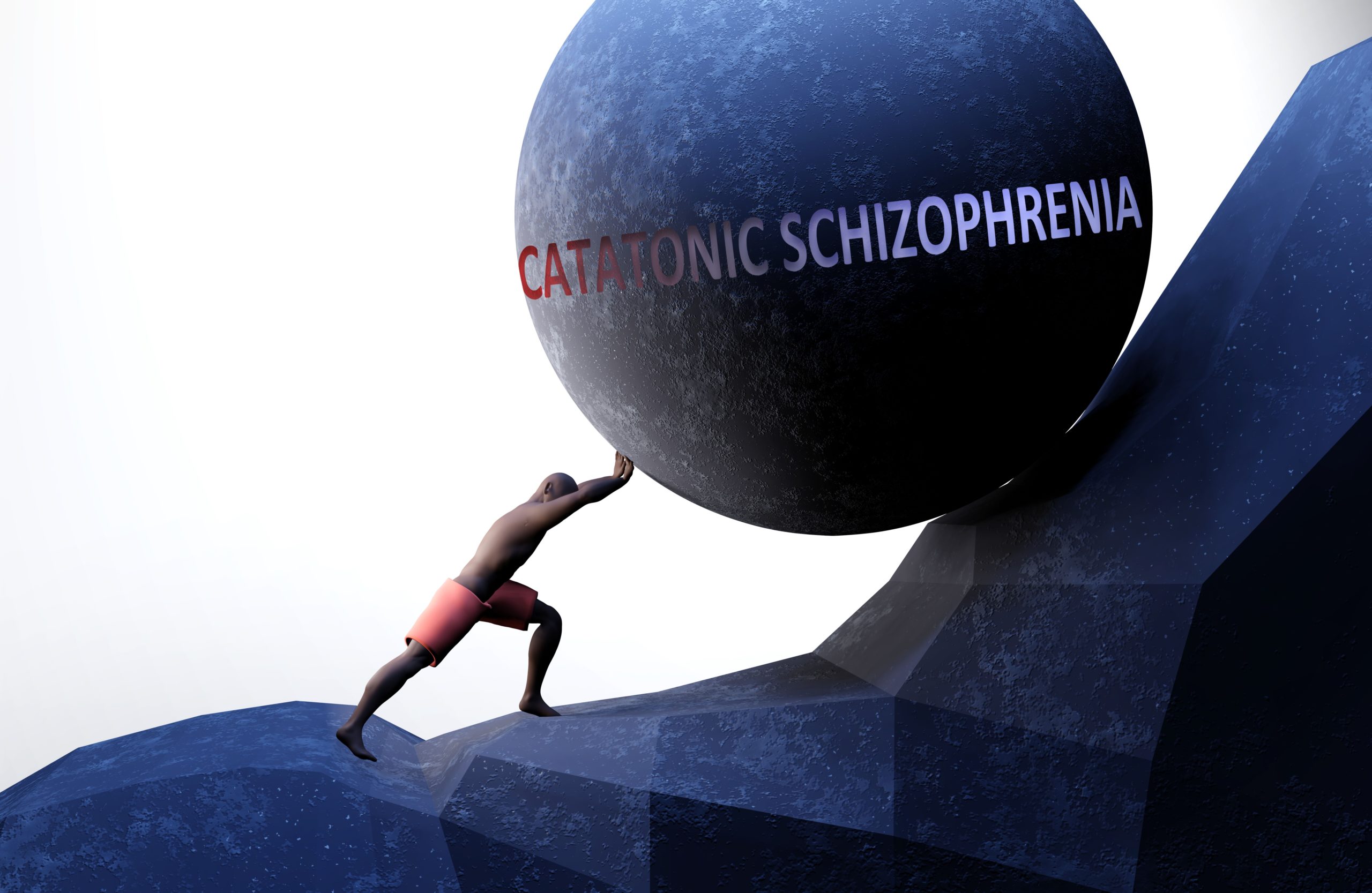What is Catatonic Schizophrenia? It could be easy to assume that catatonic schizophrenia could be considered a type of schizophrenia. Schizophrenia is a mental health illness that is associated with symptoms that include delusional thinking, hallucinations, rapid or disorganized speech, difficulty concentrating, and lack of motivation.
Rather than being a type of schizophrenia, catatonic schizophrenia actually refers to a particular set of symptoms that appears in individuals diagnosed with schizophrenia. This article answers the question, of what is catatonic schizophrenia and the ways in which to identify it.
What is Catatonic Schizophrenia?
Catatonic schizophrenia or catatonia refers to a particular set of symptoms that could develop in individuals who are diagnosed with schizophrenia. There are some common indicators of catatonic schizophrenia including fluxes of hyperactivity and lack of responsiveness. Individuals who are experiencing catatonic schizophrenia may be completely unresponsive, or on the other hand they may have extreme behaviors. The state is commonly diagnosed through a psychological evaluation, EEG, CT scan, and physical evaluation. Catatonic schizophrenia is essentially characterized by the extreme ways a person with schizophrenia moves and behaves.
Signs Of Catatonic Schizophrenia

Catatonic schizophrenia is rare and used to only be diagnosed in individuals who are schizophrenic. Now, it has been noted that the condition can occur in association with other mental illnesses including bipolar disorder, depressive disorders, and neurodevelopmental disorders.
Individuals with catatonic schizophrenia can display their symptoms in different ways. Either the individual will be unexplainably hyperactive, or they may be completely still and unresponsive. The state can last anywhere from a few minutes to a number of days.
The symptoms of catatonic schizophrenia include:
- A lack of responsiveness
- A state close to being unconscious
- Catalepsy-the loss of voluntary ability to move limbs
- Limps stay in the positions that someone puts them in
- The individual becomes mute
- Unresponsive to stimuli
- Unresponsive to instructions
- Straight posture for extended period of time also known as posturing
- Exaggerated movement
- Repetitive movements
- Unwarranted aggression
- Violence
- Inability to control facial movements
- Repeating someone else’s words without reason
- Copying someone else’s movements without reason
For an individual to be diagnosed as catatonic they have to exhibit three or more of the symptoms listed above. The state can be interrupted by times of completely opposite behaviors, such as hyperactivity. Catatonia is most commonly diagnosed in individuals who are schizophrenic.
What is The Difference Between Schizophrenia and Catatonic Schizophrenia?
As stated before catatonic schizophrenia is a set of symptoms associated with schizophrenia. Schizophrenia is a relatively uncommon psychological disorder that affects less than one percent of the U.S. population. Schizophrenia can greatly impact a person’s daily living. The common symptoms of the disorder make it difficult to maintain a job, relationships, and healthy daily habits. If a person is experiencing delusions they may not even realize that their symptoms are worsening. It is vital to seek mental health treatment as soon as possible in order to stabilize the symptoms of schizophrenia so that they do not worsen. Individuals who are experiencing catatonic symptoms can simultaneously experience the symptoms of mental illnesses like schizophrenia.
Moreover, apart from catatonia symptoms, patients with catatonic schizophrenia may also experience symptoms of schizophrenia, like:
- Delusions
- Hallucinations
- Irregular Speech
- Disorganized thoughts
- Poor expression of emotions
- Agitation
- Anger and/or violent behaviors
- Cognitive difficulties
- Inability to concentrate
- Poor planning skills
- Abnormal motor skills/movements
- Social Isolation
- Lack of restraint
- Apathy
- Detachment
There are many other signs of schizophrenia than the ones listed above. Understanding the difference between schizophrenia and catatonic schizophrenia is important when seeking treatment, but it is always best to speak with a licensed professional. Individuals with the signs and symptoms of catatonic schizophrenia are normally unable to get help for themselves. Normally, a spouse, close friend, or family member must help them and seek out treatment.
Treatment For Schizophrenia
Normally the first line of treatment for individuals in a catatonic state is medication. Common medications that are used are different types of benzodiazepines, which include:
- Valium
- Ativan
- Xanax
- Tranxene
It is also important to include different types of psychotherapy in an individual’s treatment plan. It is vital that the underlying mental illness that caused the catatonic state in the first place is properly addressed in individual therapeutic sessions in order to help the patient return to a stable state. Some of the different forms of therapy used to treat catatonic schizophrenia include:
- Cognitive Behavioral Therapy (CBT)
- Dialectical Behavioral Therapy (DBT)
- Eye Movement Desensitization and Reprocessing Therapy (EMDR)
There are also a number of different levels of care that can help a person in a catatonic state slowly reintegrate back into a normal state and transition to daily living again. These levels of care include:
If you are noticing that a loved one appears to be in a schizophrenic state, then reach out to a licensed mental health facility as soon as possible. The facility can do a proper evaluation to formulate the correct treatment plan and get them the help they need right away.
Schizophrenia Treatment In Nashville, TN
At Arbor Wellness in Nashville, TN we offer a comprehensive mental health treatment facility that is well equipped to treat a variety of different mental health illnesses. If you or a loved one is struggling with Schizophrenia and needs help managing the effects of this difficult mental illness, then contact our admissions team today. We understand that Schizophrenia is a complicated mental illness that can greatly impact daily living, but we are well equipped to help you become stable and return back to a productive and healthy lifestyle.










